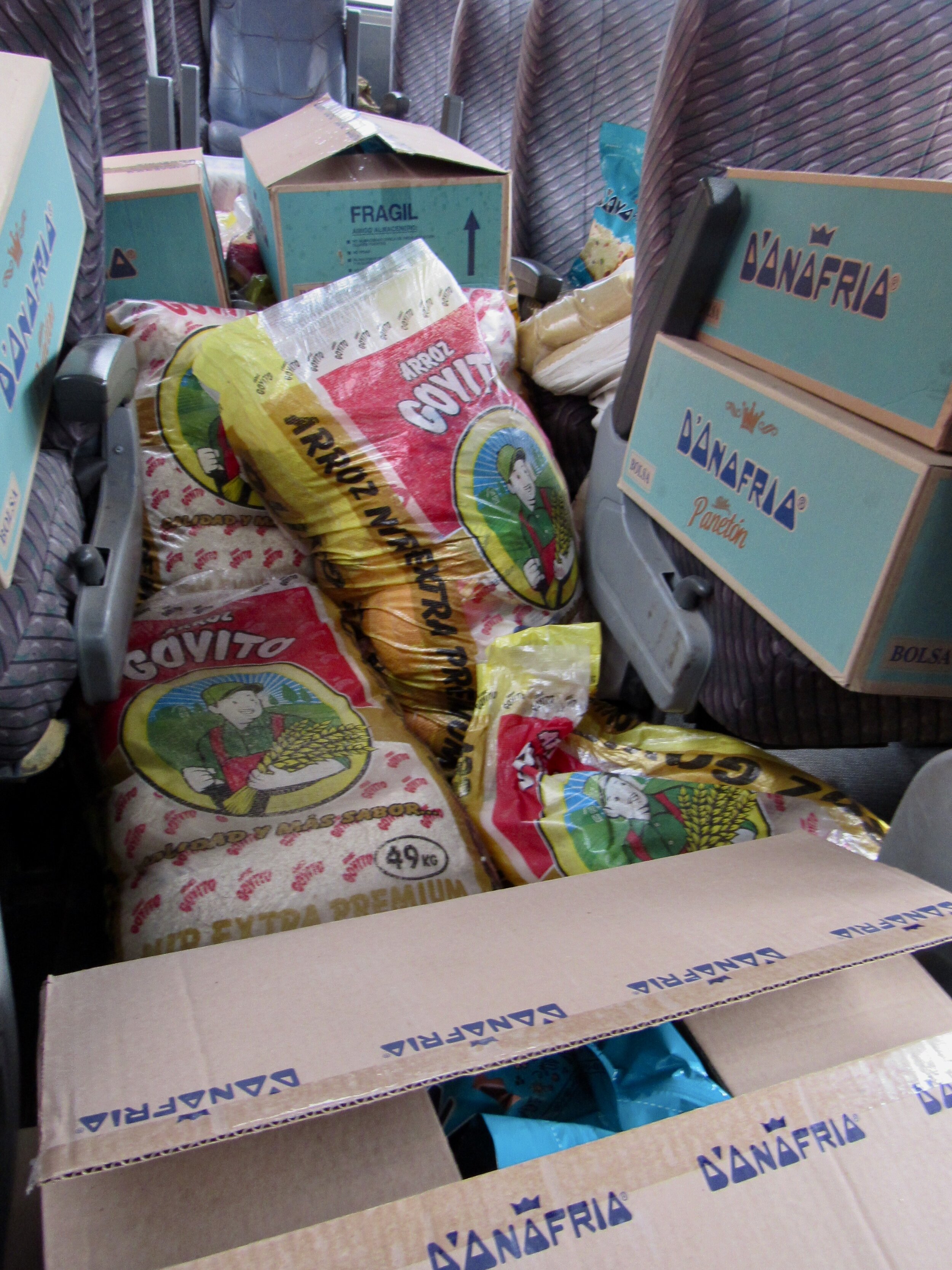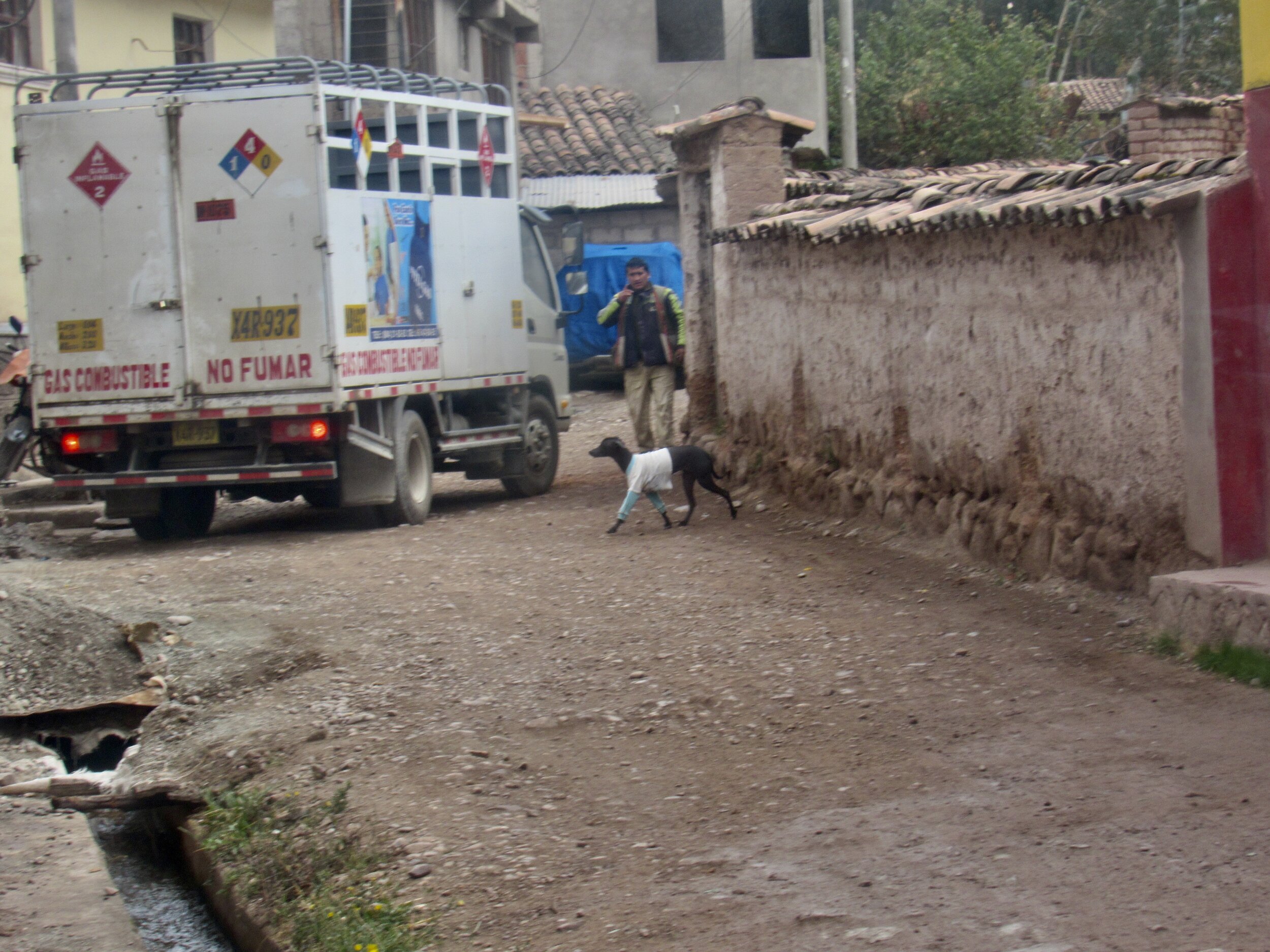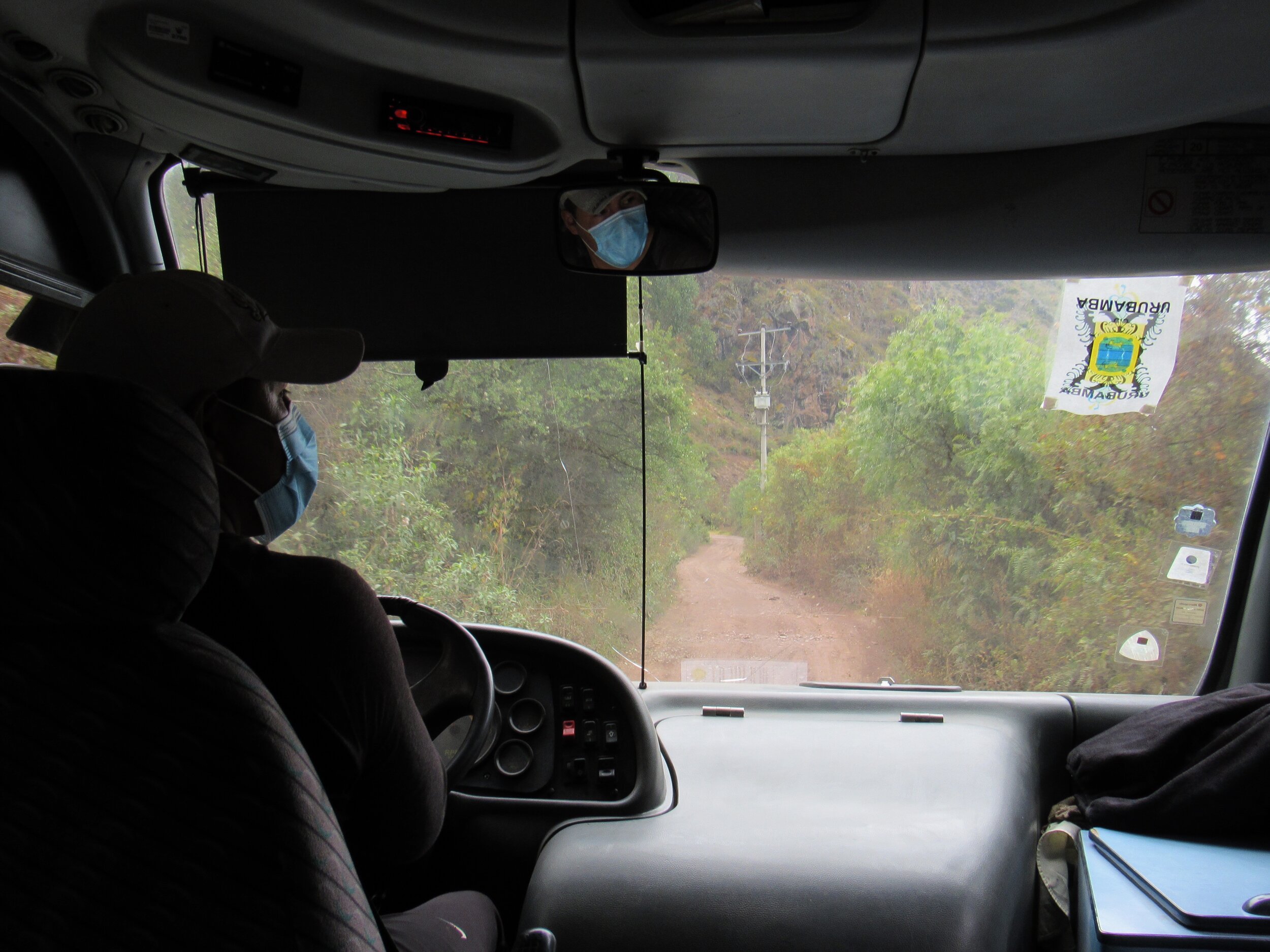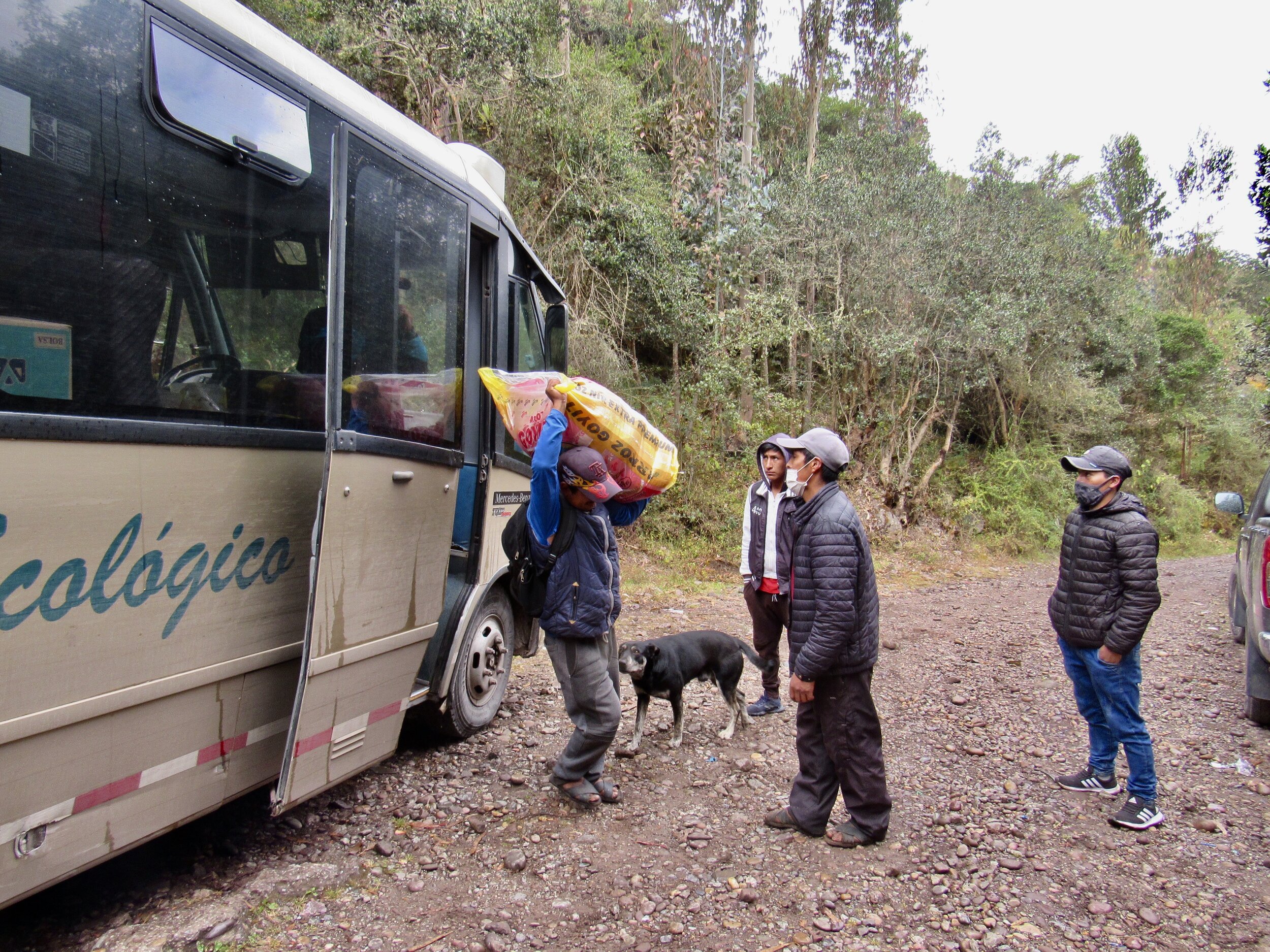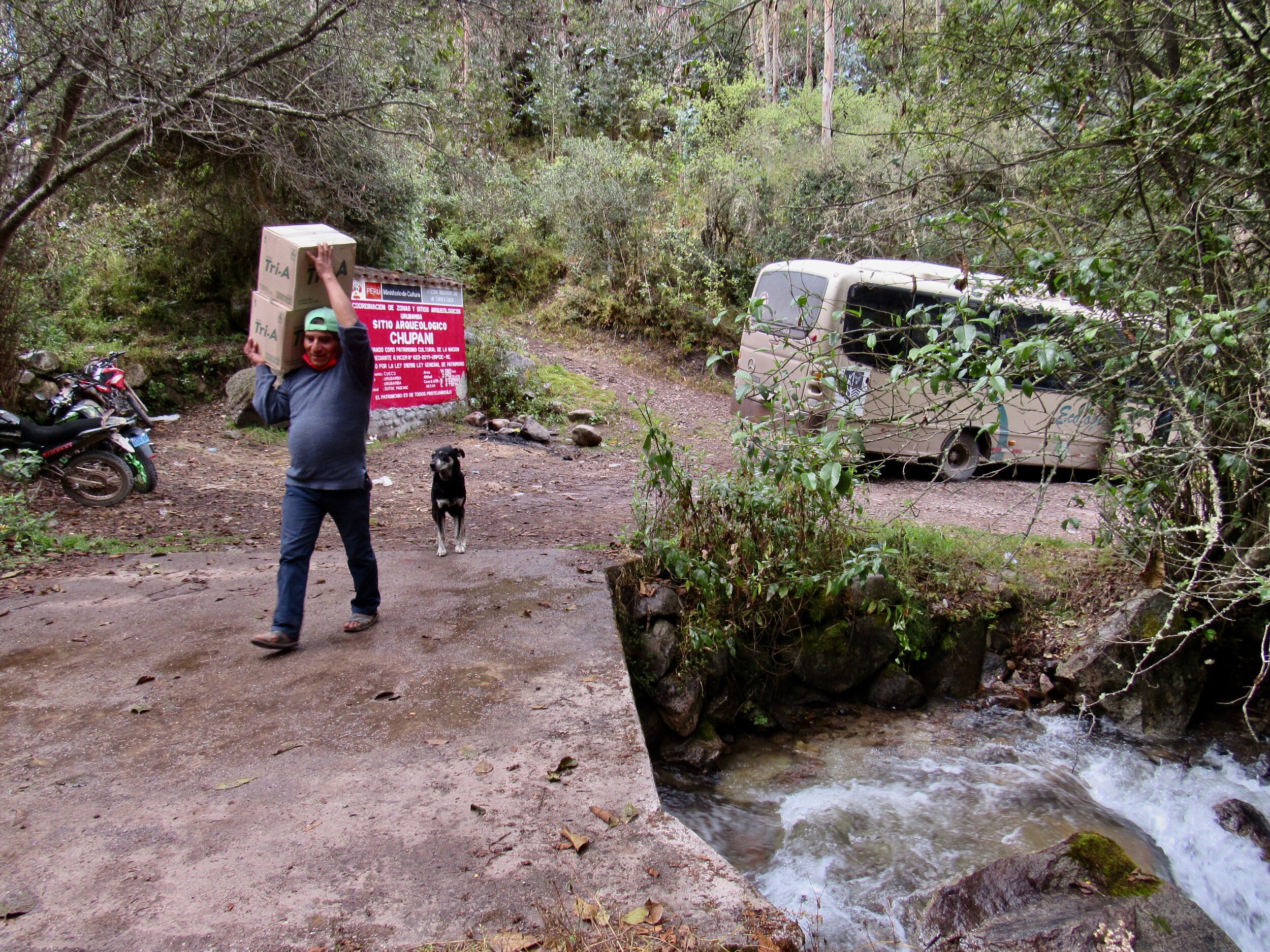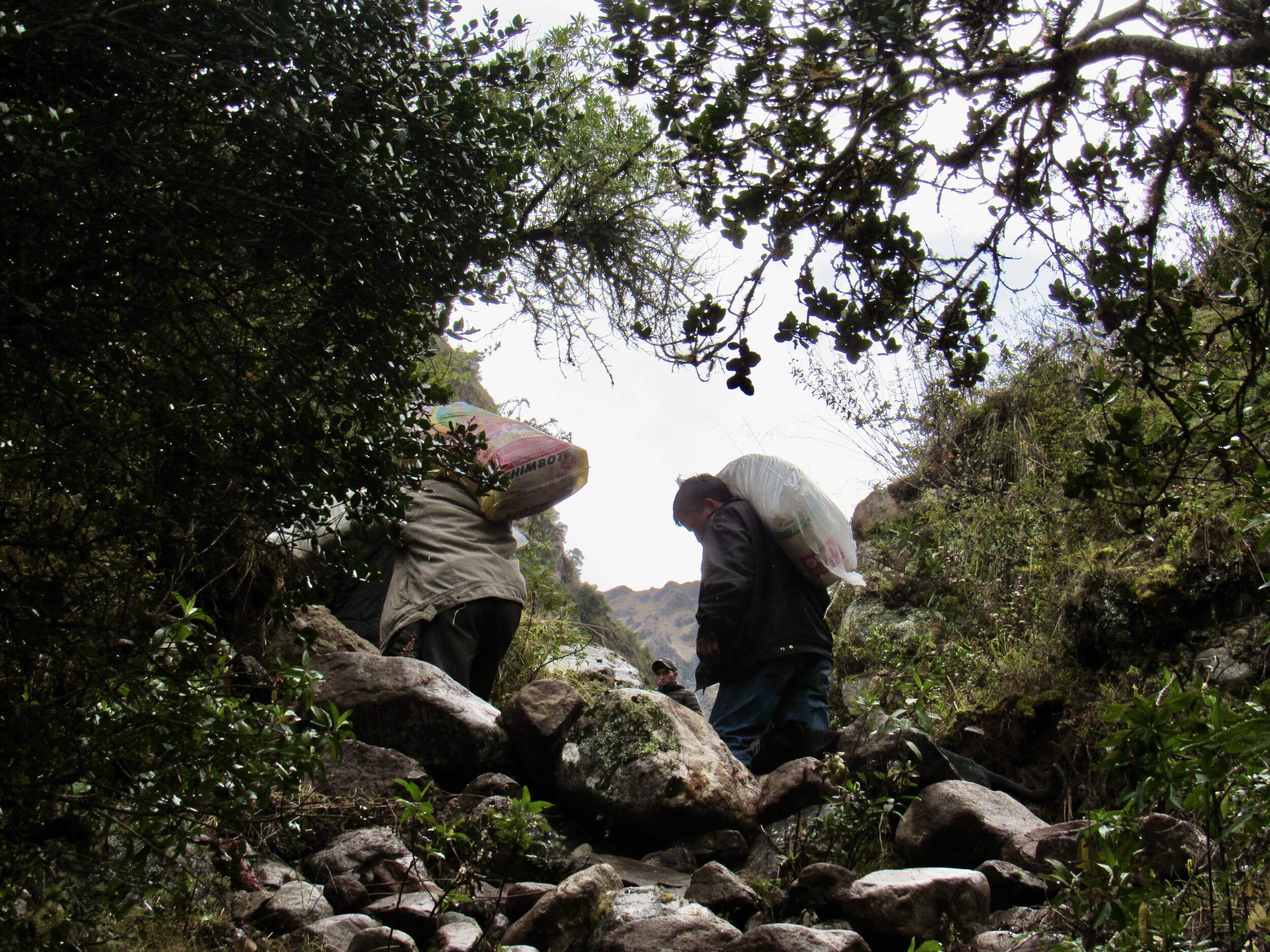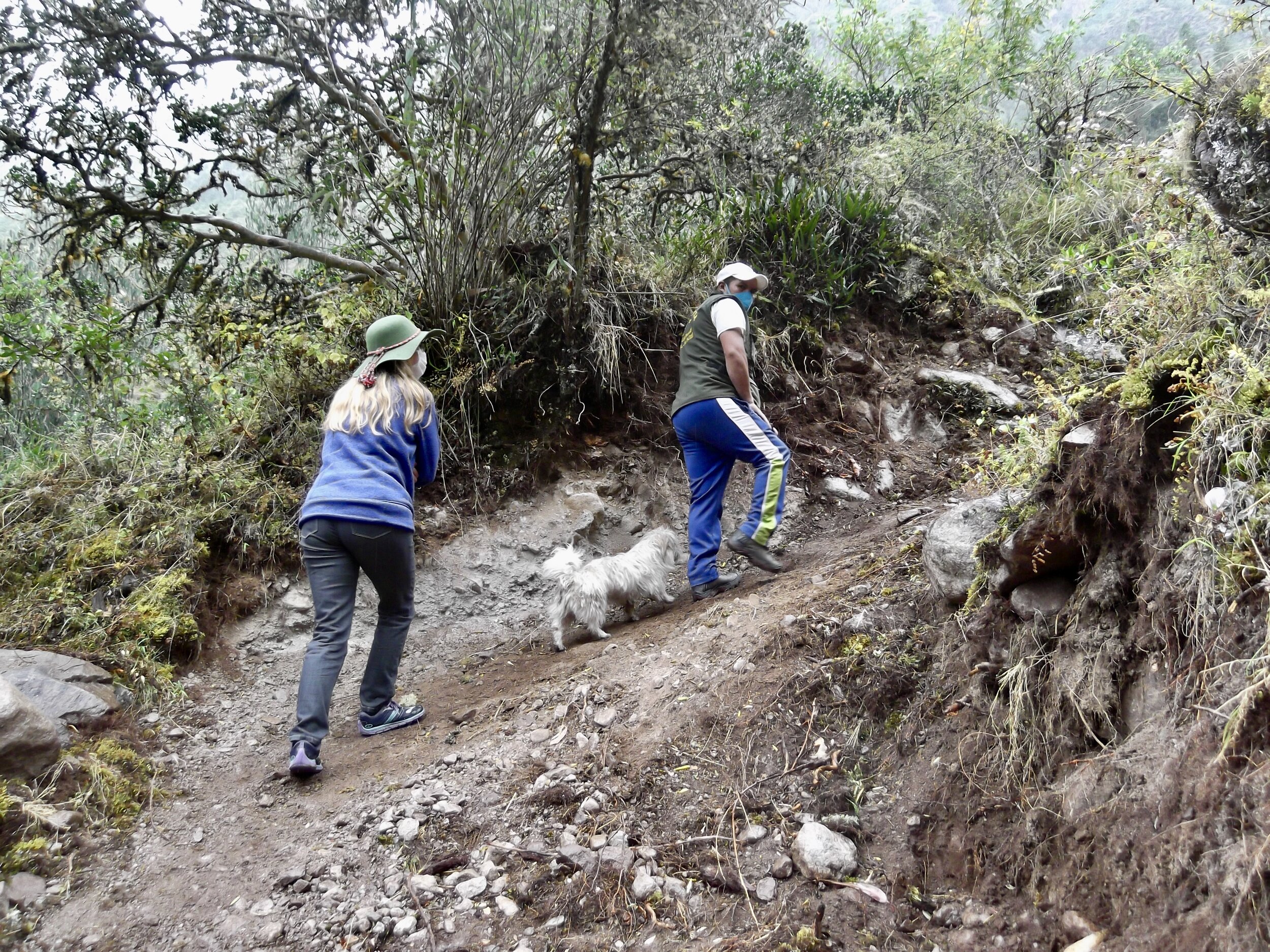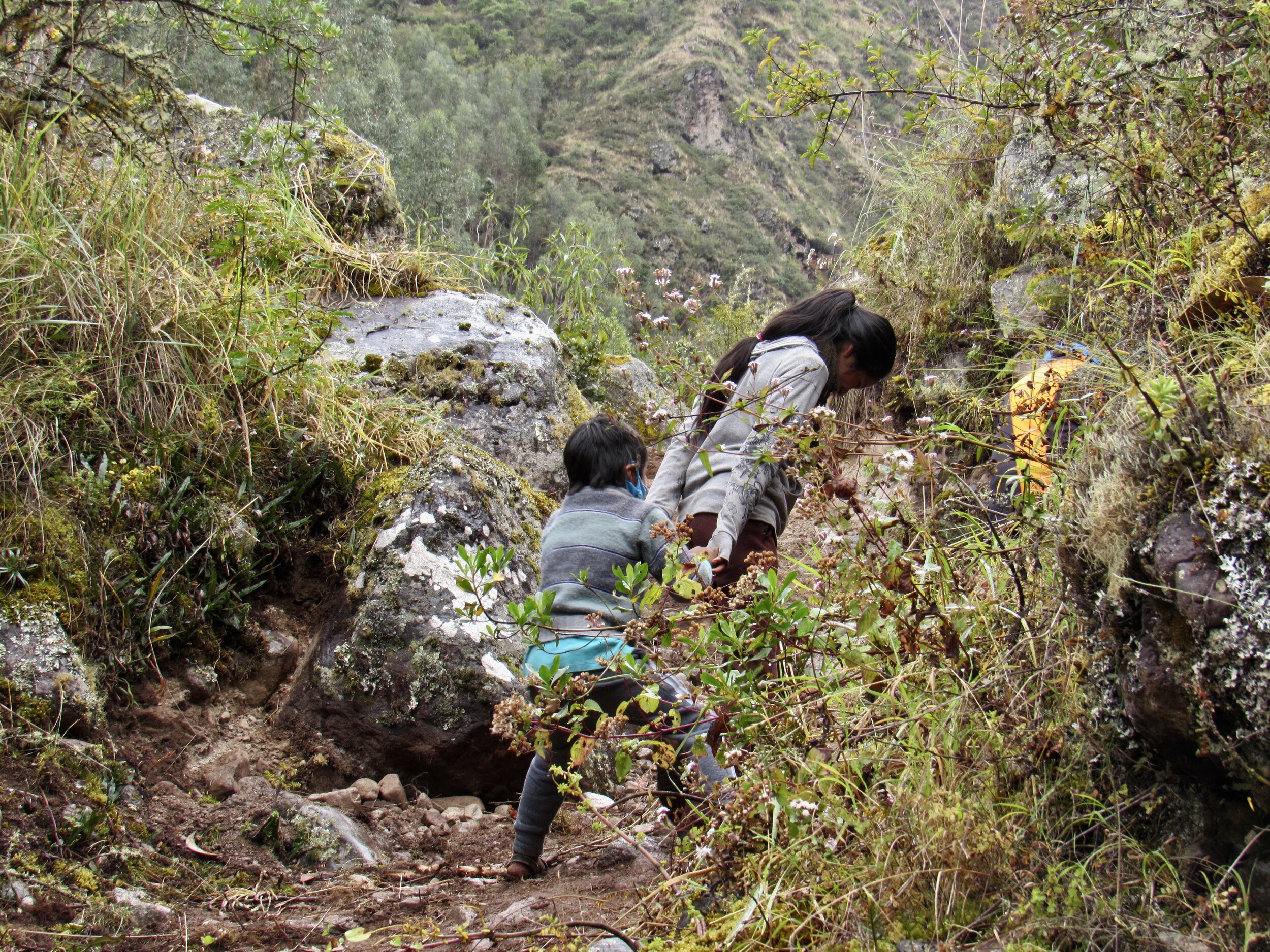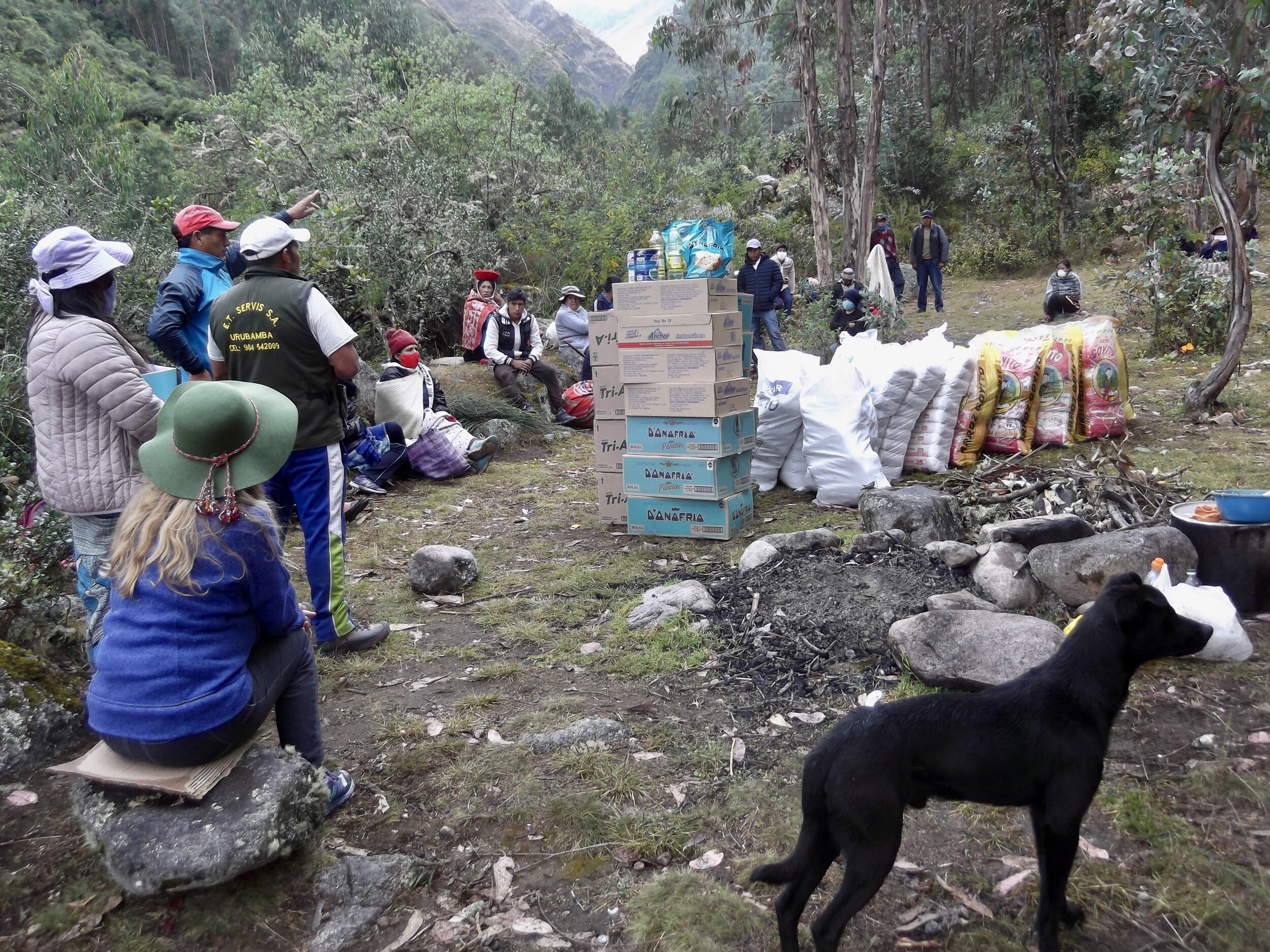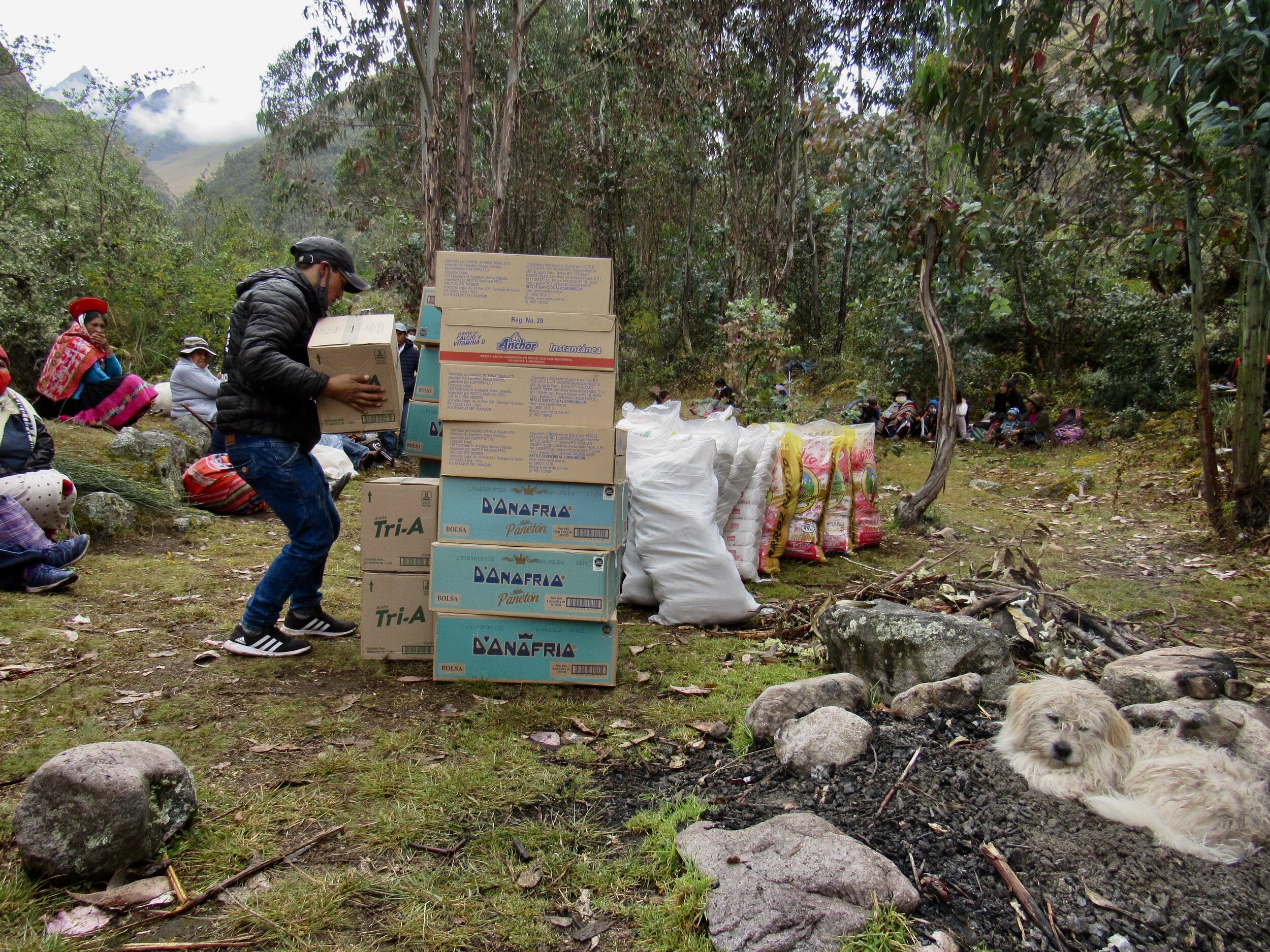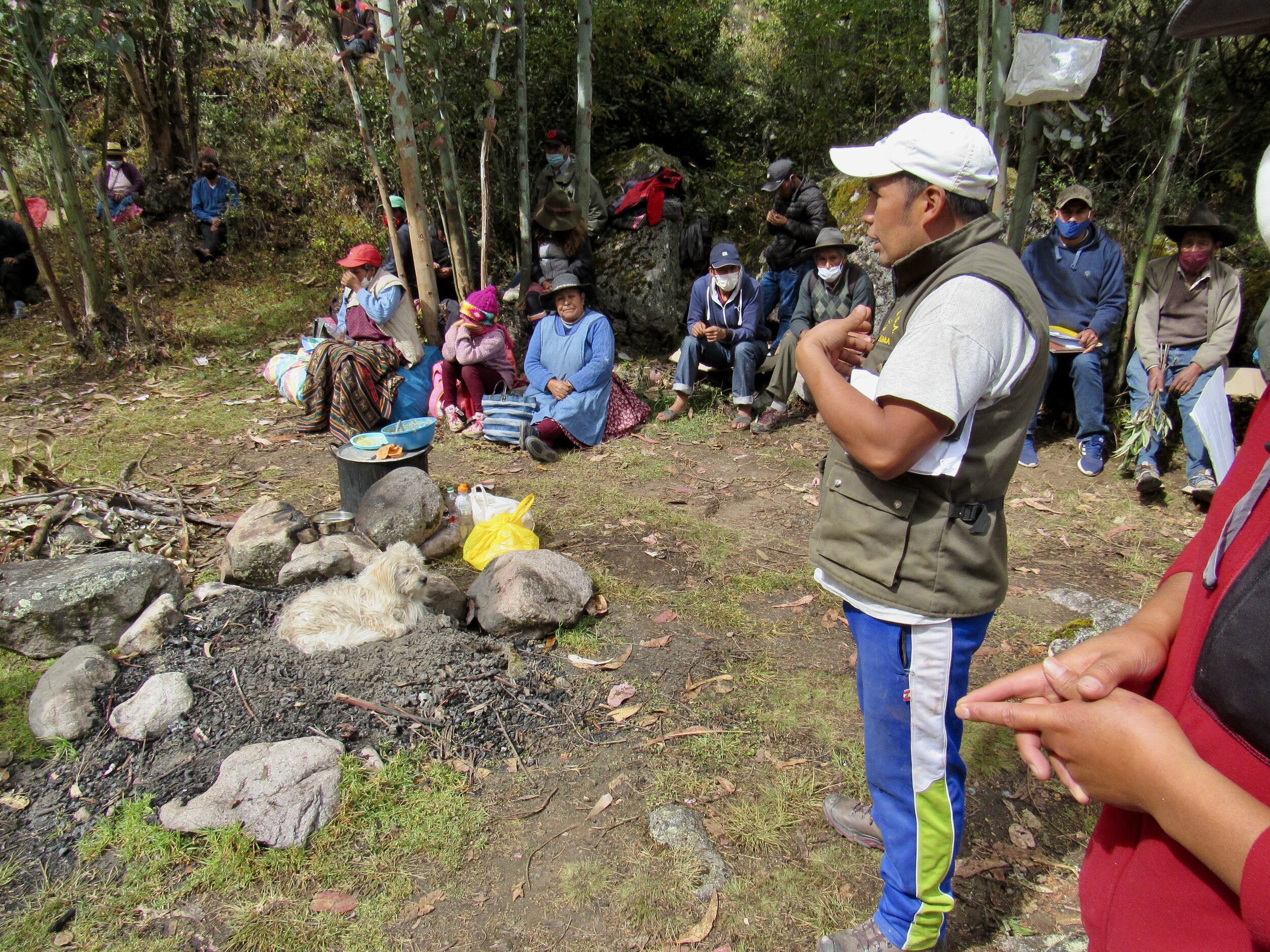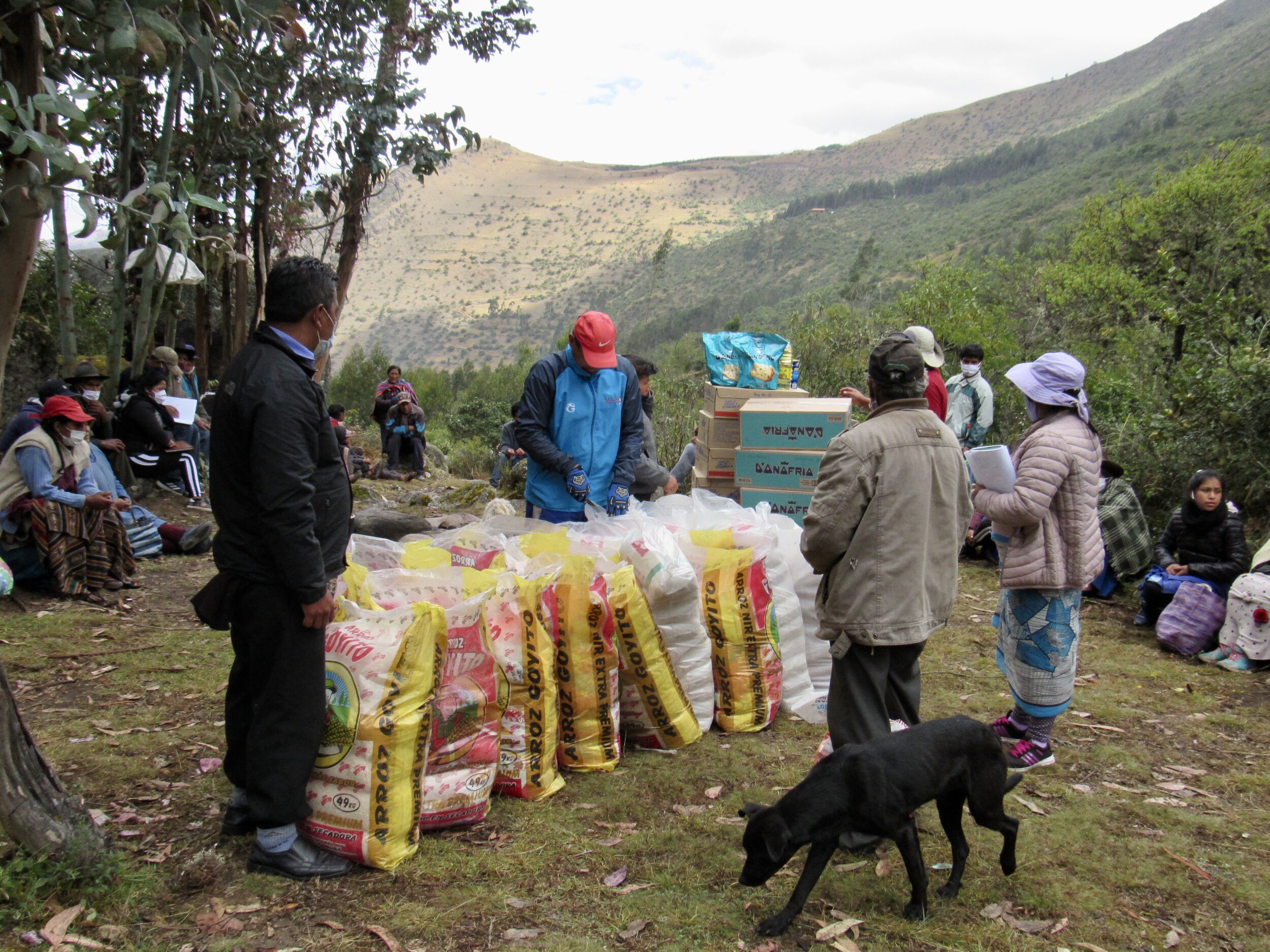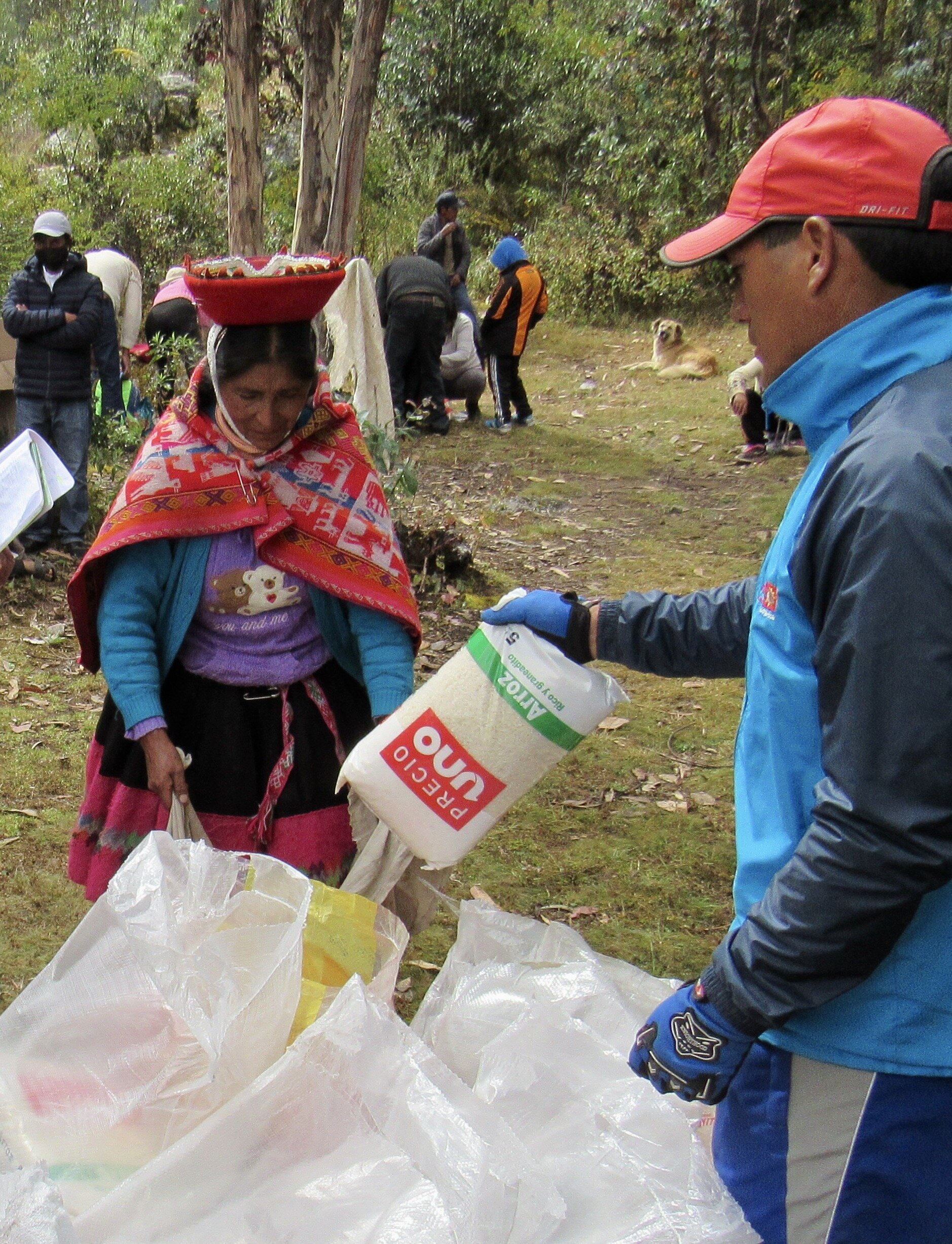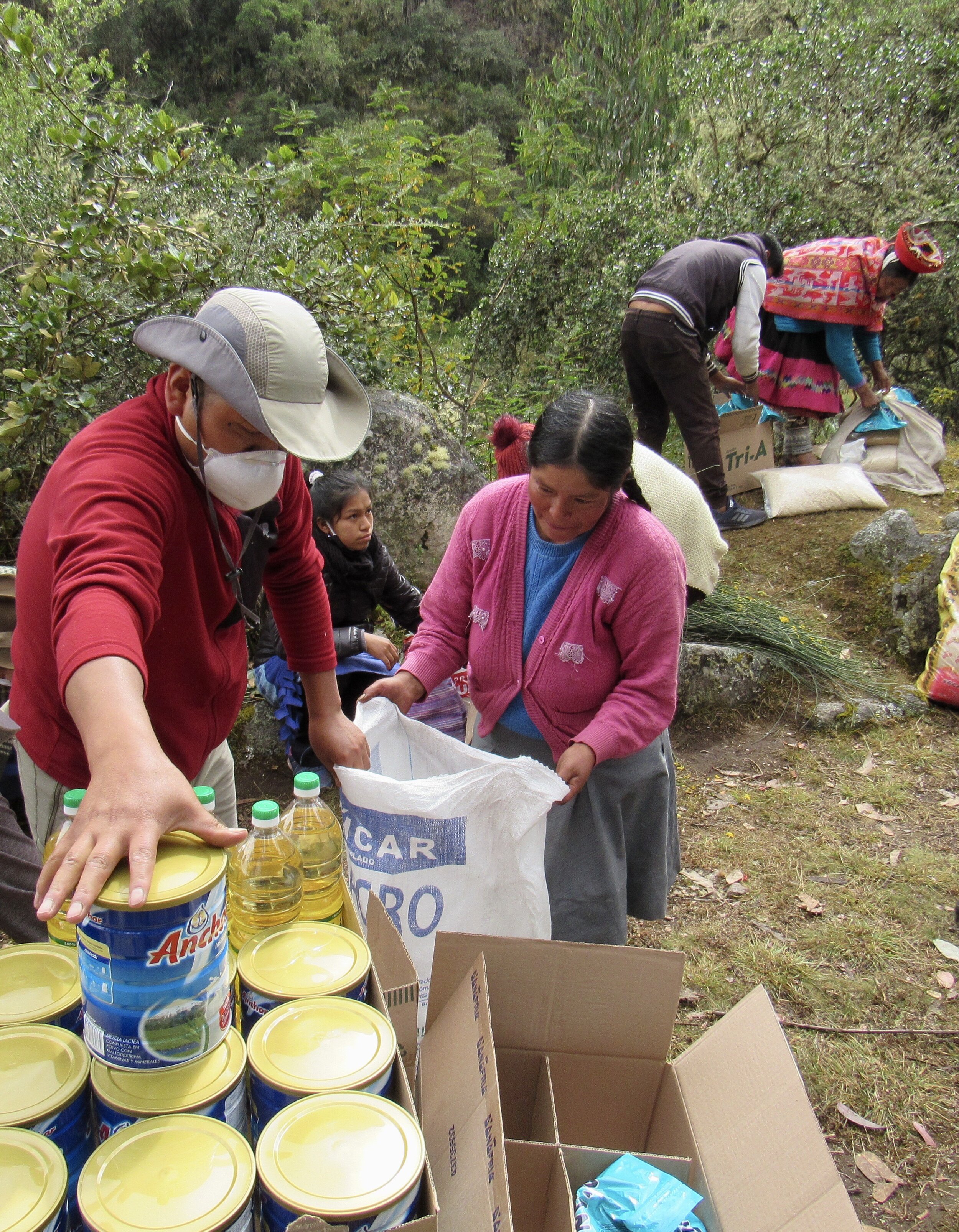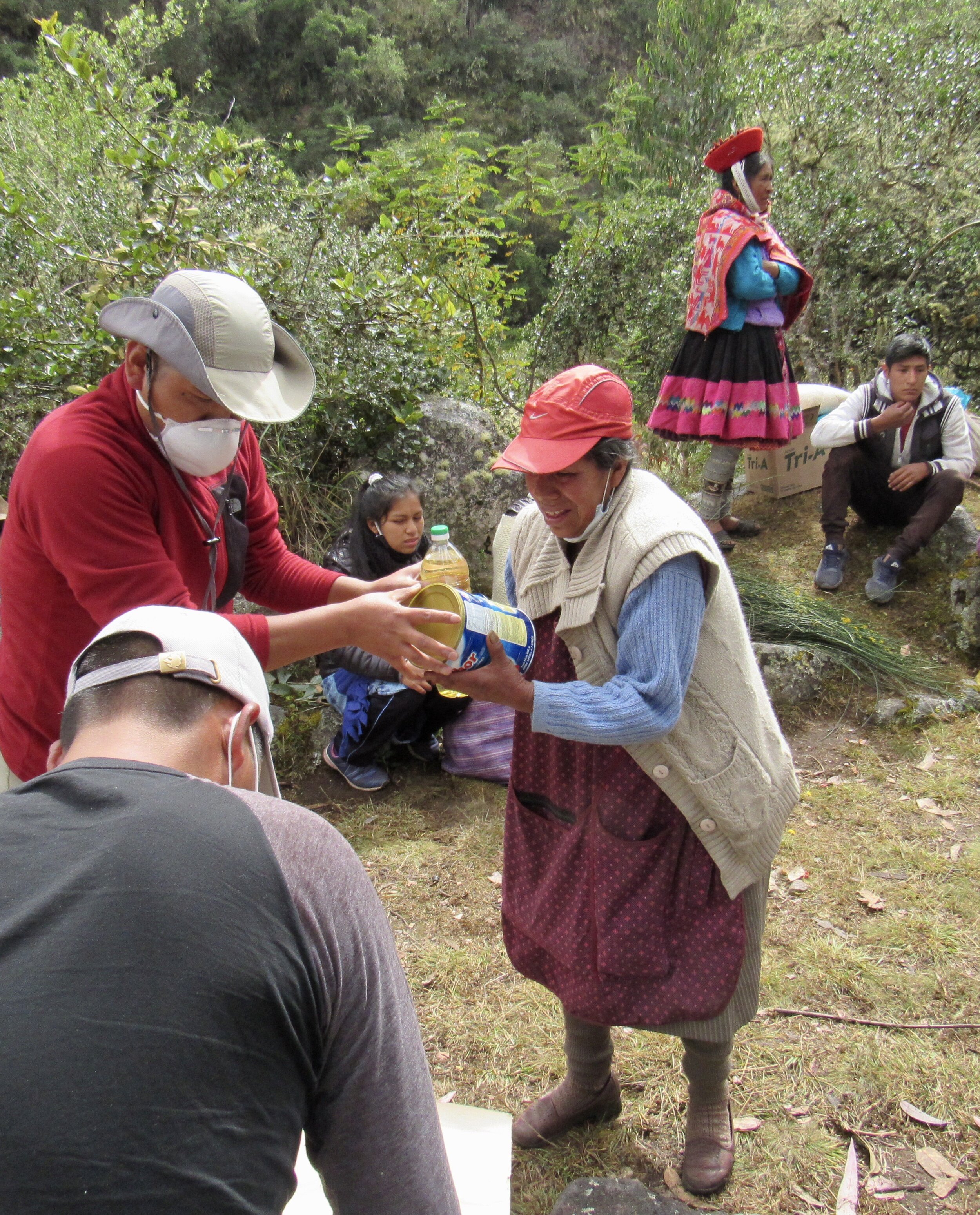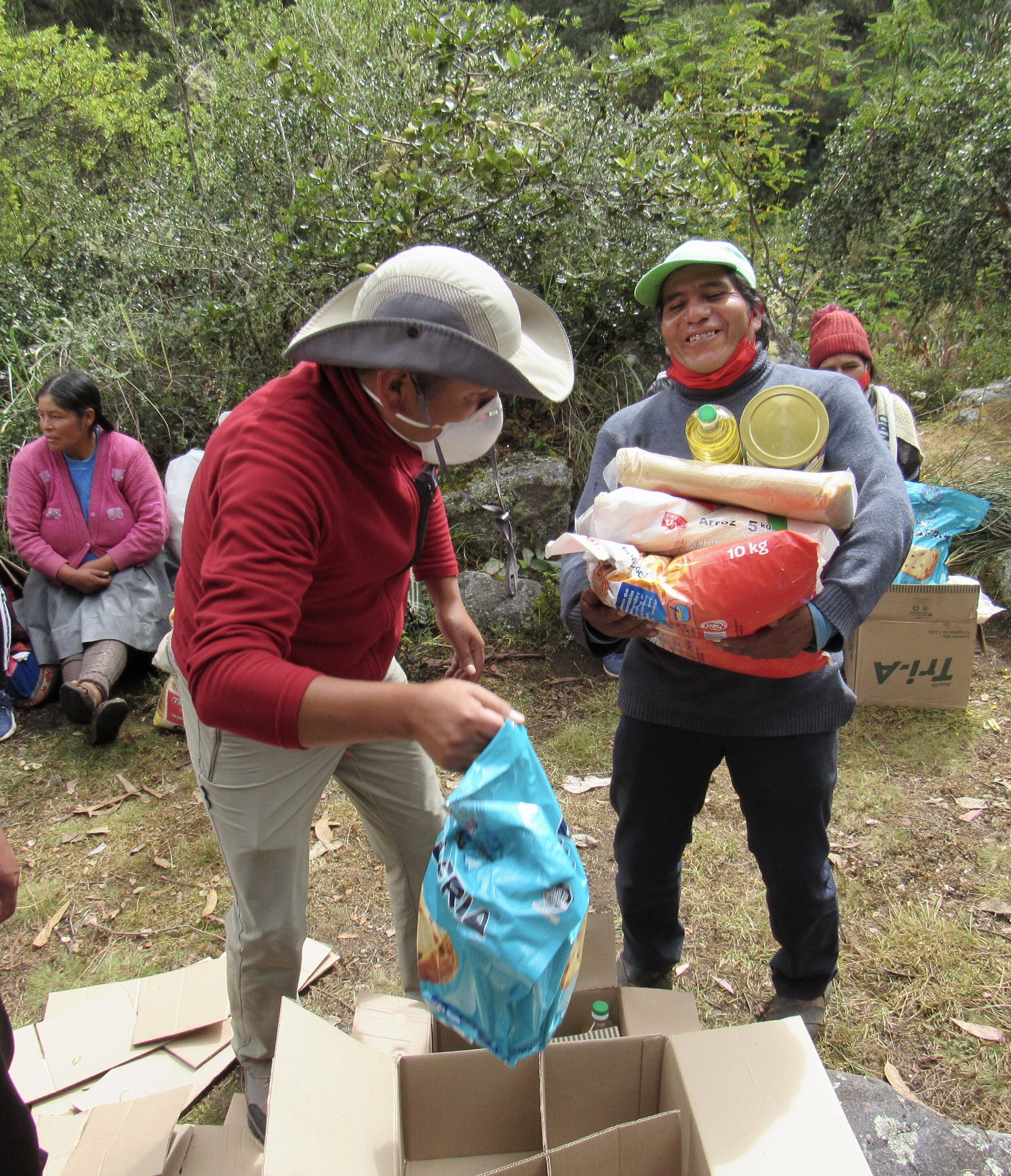Comunidad Campesina de Sut’uc-Pacchaq
Today we took food to the communities of Sut’uc-Pacchaq, which are a two hour walk from the nearest road. We had been in communication with the mayor of Urubamba, looking for a community who truly needed help now. The government has been sending some financial assistance to vulnerable families during the quarantine and state of emergency, but it is far from adequate.
Auqui has stepped in to work on today’s event. Henry, who organized the event on May 16th, and his wife had a baby last week, so he’s been too busy for the project. Auqui and the mayor of Urubamba settled on Sut’uc-Pacchaq because nobody in either community currently has a job besides subsistence farming. Those who used to work outside the community were horsemen, running the pack horses that carry gear for trekkers in the Lares valley. The community leader, Valerio, identified 50 families who are in the most desperate need.
Since the government declared a state of emergency and closed the borders on March 16th, there have been no tourists and no treks. Considering how this pandemic is unfolding around the world, they might not have work for all of 2020.
Through the extraordinary generosity of our donors, on Thursday I was able to go to the wholesaler that I had been working with and pay for everything I had hoped for: 5 kilos of rice, 5 kilos of fortified oatmeal for children, a large tin of powdered milk and a 1 liter bottle of vegetable oil for cooking. Thanks to some last minute donations, I also had enough this morning to pay for a 5 kilo bag of sugar per family, with another s/600 left over (s/ is the symbol for Peruvian Soles).
We understand that sugar is not a particularly healthy item to be handing out, but I have been greatly comforted by stress-baking apple pie and banana bread while stuck at home during the pandemic. Who are we to say that sweets won’t be comforting to these families during such hard times?
Last week I went around to several wholesalers to see what they could do for me. Most brushed me off. Jorge, at Wagner’s Licoreria, was very interested in the project. He took me around the store, showing me how much he could cut off the wholesale price, since this was a service project. He told us over and over how grateful he was that we were helping his Peruvian brothers and sisters. He was the perfect guy to work with!
With the extra s/600 for 50 families, Jorge and I looked at several options at s/12. We went through several possibilities: pasta, more vegetable oil, hot chocolate and several others. I was hoping for something festive, something that would really make people smile. Rice and oatmeal and vegetable oil are basic necessities that we knew were not available to the people in the villages of Sut’uc or Pacchaq, but I wanted to also bring something that would feel like a gift, not just a handout for desperate families.
I had my eye on a stack of boxes of panettone. The sweet Italian bread, which is more like cake than bread, is very popular here at Christmas. Jorge finally agreed to drastically lower the price on panettone for us. Normally, a panettone is about s/30. He had them on sale for s/23 and I bargained him down to s/12. Next, I asked Auqui to talk to him. Auqui got him down for s/10 per panettone and I used s/70 of the remaining s/100 to buy five extra bags of rice. Last time, it was really helpful to have extra bags of rice, for people who weren’t on the list, but who needed food anyway.
With the bus seats and aisle stacked with bags of rice, oatmeal, and sugar, and boxes of vegetable oil, tins of powdered milk and panettone, we set off. The driver, cooincidentally named Henry, got us through the checkpoints leaving Cusco and arriving in Urubamba. It’s about an hour and a half from Cusco to Urubamba.
Leaving Urubamba on a small road, headed north, we drove about another hour to the end of the road, at the Inca archeological site of Chupani. We were met by the mayor of Urubamba, who was just leaving. Since the communities of Sut’uc and Pacchaq are a two hour walk from Chupani, he took the opportunity to have a community meeting while they waited for us to arrive. Each community is in a parallel valley, both a very steep two hours uphill from Chupani.
The community had gathered in a beautiful glade about 10 minutes walk from where we could get the bus. Several community members helped carry everything from the bus up to the glade, where Auqui and I were offered lunch before we started the distribution. Lunch was boiled potatoes with a delicious spicy pepper sauce, thinly sliced purple onion and mint leaves. I wasn’t particularly hungry, but knew that we likely wouldn’t get anything else to eat all day and gratefully accepted their offer.
I love sharing food with people here and honestly do love boiled potatoes. June is potato harvest time and the fresh potatoes that we were served today were delicious. The fresh potatoes here, compared to what you buy in stores are like the difference between fresh garden tomatoes and what you buy in stores. The beautiful mountain valley, festive mood of the gathered villagers and speeches by the community leader Valerio, made me feel truly welcomed. I felt like they were happy to have Auqui and I there, regardless of what we had brought with us.
The actual distribution went quickly. Like the mayor of Yaurisque, Valerio had a list of the 50 families who he had chosen as the most in need. He got a few others to help with distribution and one woman to call out the names from the list. Valerio and two other guys handed out the 5 kilo bags of rice, oatmeal and sugar. Auqui balanced a tin of powdered milk, bottle of vegetable oil and panettone on top of each person’s three 5 kilo bags.
Some people had brought lengths of cloth to tie everything to their back for the 2 hour hike back up to their homes. Some took the larger sacks that had contained the bags of rice, oatmeal and sugar, as they were emptied. Others took the boxes from the oil, powdered milk and panettone. Nothing was wasted and none of the packaging was considered trash. One of the reasons I had been so insistent on a tin of milk, rather than a bag, is that I know how useful those tins are. They’re like the big tins that people used to buy Folgers coffee in. Outside of Seattle, people probably still buy Folgers coffee.
The day involved a lot more speeches than I had expected. Since the rural areas outside of Yaurisque were so spread out, Henry and I made five different stops along the road to distribute aid. This time, everybody had come to us, in the same place. Valerio and Auqui spoke in Quechua and I added a bit in Spanish, before we distributed the food. Afterwards there was another round of speeches.
Valerio talked about various initiatives to improve the lives of the villagers and thanked Auqui and I for bringing so much food. Auqui explained about the project, who we were, why we were doing this and where the donations came from. I thanked them for allowing me to take photos of them. Many traditional Quechua people here are shy about having their photo taken. I explained that they had the people of Yaurisque to thank, in part, for the food that they were receiving today. It was easier to raise funds for today because donors saw photos of the people of Yaurisque receiving aid last time. Allowing me to take photos today would help raise funds for the next community. The concept of Ayni, usually translated as “today for me, tomorrow for you” is a very important part of traditional Quechua culture. It’s kind of like the concept of paying it forward. Everybody understood exactly what I meant about the people of Yaurisque helping them, and how they can help the next community.
It was a beautiful day, but eventually we had to leave and it was so heartwarming to see how many people came to hug us and thank us again. I know that we’re only supposed to bump elbows, but sometimes we just need that human connection of a hug. I was surprised that they weren’t more wary of people coming from Cusco, since none of the communities in the Urubamba area have any cases of Covid. They really were happy with all the donations that they had received and some took off their masks so I could see that they were smiling ear to ear.
Heading back, Henry drove Auqui and I back to Urubamba in the empty bus. It seemed silly to us to drive us back all the way to Cusco in an empty bus, so we stopped at the main Urubamba police station to see if there was a smaller vehicle that we could use. Since the Urubamba town hall had gotten police permission for the bus to go back and forth to Cusco, we would have to get police permission for another vehicle. The police said that it would take too long, or be too complicated, to get permission for another vehicle. However, they offered to drive us back in a police vehicle.
Auqui and I sat in the back seats of a pick up with an extended cab, our two police escorts sitting up front. We actually did get hassled by the national police at the checkpoint entering Cusco. They said that local police forces had to get permission from the national police to move between two towns. Eventually, they let us go, saying that they were going to call the mayor of Urubamba and warn him to get the proper authorization next time. I was so grateful that the police drove me right to my house in the gathering dark.
The rules of the State of Emergency are very difficult for anybody who can’t tele-commute. Even for those of us working from home, the restrictions on transportation, curfew and other rules make everything very complicated. There is no telling when Peru will relax enough, and other countries will also relax enough, to allow international tourists to come back. In the meantime, we will keep doing our best to find and help those in the greatest need.
For those interested in exactly where we were, below are maps from Cusco to Urubamba to the end of the road, the map of the Lares valleys with Sut’uc-Pacchaq in green and the Chupani sign with coordinates.

